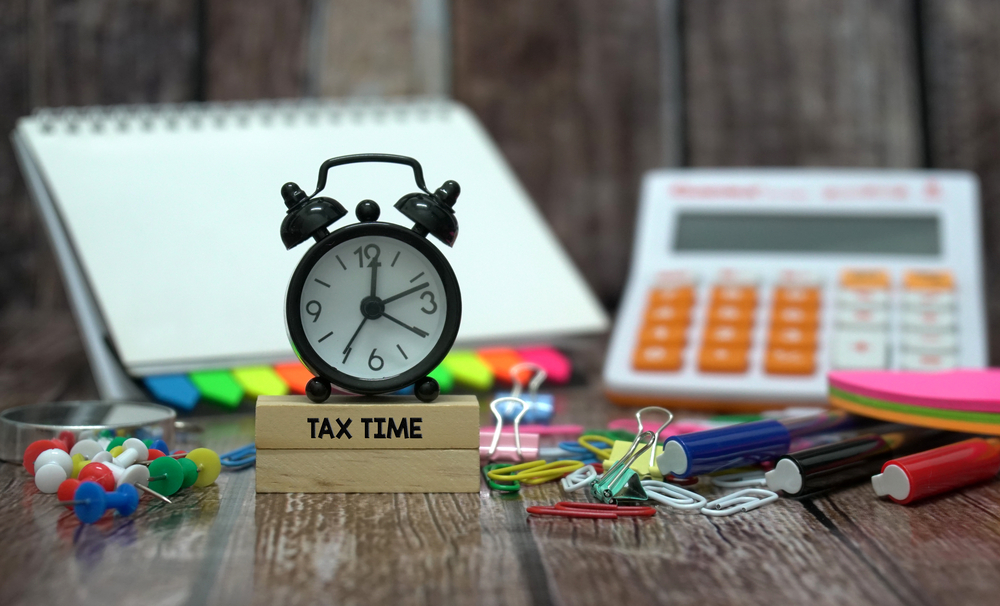Declaring your freedom from the traditional 9-5 work life and choosing to explore the gig economy comes with several benefits. Working as a freelancer or entrepreneur means you can be location independent and spend time on work that you truly enjoy.
But it also comes with some unique situations that you may not have had to worry about with your previous employment.
Many a freelancer will agree that trying to navigate tax season as a solopreneur or sole proprietor is not always exciting or easy.
There are several ways to become better prepared for tax season this year, though. Investing in client and payment management software is a great option to get started, but let’s explore some helpful tips to ensure you’re well equipped as deadlines approach and feeling confident as you look ahead to next year’s tax preparation.
What Types of Taxes do Freelancers Need to Pay?

As a freelancer, you’re considered a business owner by the government. And all business owners must withhold taxes from their income, in preparation for tax season.
You are also responsible to budget for any needed benefits – such as health insurance and retirement funds.
It’s important to have an understanding of the various taxes you’ll be responsible for as someone who is a self-employed freelancer. It can be a bit overwhelming to figure this out if you’re not a skilled tax professional, so we’ve broken it down for you, below:
- Self-employed workers are required to pay taxes annually and are often also required to file estimated quarterly taxes. Taxes are broken into two categories, state taxes and federal taxes.
- Freelancers must generally pay self-employment tax. Self-employment tax includes Social Security taxes and Medicare taxes that an employer would typically pay on your behalf.
- They’ll also be required to pay income tax.
To determine if you are subject to all of the taxes mentioned above, you’ll need to calculate the net profit or net loss of your business for the year. The IRS website provides specific instructions on how to calculate these figures properly.
It’s also important to educate yourself on the effects of new tax-related bills as they come into play.
For example, in December 2017, President Donald J. Trump signed H.R 1 into effect, which changed the percentage of backup withholdings that independent contractors and other non-wage workers are required to report, down from 28% to 24%. The law also affected the types of deductions and exclusions independent workers are allowed to report, which are important to understand.
Once you’ve reviewed the types of taxes your business (no matter how big or small) is responsible for, it’s time to explore a few ways to become better prepared for tax season.
1. Know the Tax-Related Documents Required (and Have Them Ready in Advance)

We’ve been there: scrambling at the last minute to find documents and receipts most likely lost in the bottom of a backpack six months ago.
And, while we don’t really like to think about taxes throughout the year, knowing the various types of taxes you’ll need to pay as a freelancer does help you understand which tax-related documents that your business requires (i.e: which documents can be tossed, and which should be safely filed away for later).
Each freelance business within the gig economy operates differently and each state may require slightly different tax-related documents (in addition to the Federal documents needed), so it’s important to do your research.
You should explore and get familiar with the various types of documents that could support your tax forms, such as:
- LLC or Sole Proprietor Annual Reports
- Vendor Tax Identification Numbers
- Client invoice and payment records
- Business-related expense receipts
- Payments made to any sub-contractors you’ve used
- Business account bank statements
- Applicable 1099 forms from clients
By researching applicable documents for filing your taxes, as well as recording important business-related expense information throughout the year, you’ll be well organized when tax season arrives.
And, if Google isn’t providing you with all the answers you need, you can always reach out to the small business association in your tax-filing area and inquire about forms and documents that will make filing your business taxes easier.
2. Commit to Keeping Super Organized Client Records

It’s been said that cleanliness is next to godliness. Well, it’s true of your organizational skills as well. The key to becoming prepared for tax season is organization and the sooner you’re able to keep clear records for your freelance business, the better.
While it may be too late to make an organizational resolution for this year’s returns, you can start preparing for next April now. This may seem overwhelming at first, but don’t worry! There are several software programs and apps that can get you started pain-free.
Be sure that you’re recording every payment you receive from your work – even if your business is just a small side-hustle you do after you get home from your regular 9-5 job at the office.
Even $100 client payments add up over time and, if you make more than $400 from a single client in one year, you’re required to claim it for taxes. For filing purposes, it’s best to note the date services were delivered, the date you send the invoice and the date your payment was received on, in case you or a client have questions about an invoice later on.
The next biggest piece of advice we can give is to always keep your freelance income separate from your other money.
Consider opening up a new bank account to make tracking expenses easier. This will ensure you can quickly review all incoming checks from clients, and it also protects you in the event you get audited.
Trust us, if Uncle Sam wants more specific information about any of the freelance income you’ve received, you’ll be glad you kept your finances super organized.
Also, creating a separate bank account for your freelance income means you’ll be able to more easily see which business-related expenses you can write off at the end of the year.
3. Ace your Business-Related Deductions

To save yourself money when tax season arrives, it’s important to take advantage of any appropriate business-related deductions.
As a business owner, you’re solely responsible for providing yourself (and your team, if applicable) with the resources you need to grow your business and do your job effectively. These business-related expenses translate to write-offs at the end of the year.
Here are some common deductions that may apply to your work:
- Computers or laptops
- Office supplies such as notepads, printer paper, business cards and more
- Mileage or car shares to and from business-related meetings
- Monthly fees for office phones and the internet
- Your home office or co-working fees
- Professional organization memberships or networking expenses
- Expenses related to keeping your personal website up
- Gear related to your work, such as cameras, film, and other accessories
It’s essential to keep good records of all of the business-related expenses that you incur monthly and annually – whether with your online payment and accounting software or with physical copies.
While you are getting used to recording all your expenses, you may want to set aside time each week or one day a month to log every business-related expense that you had over the past few weeks. By setting a recurring meeting reminder for yourself, you’re more likely to prioritize doing it and less likely to fall behind on this task throughout the year.
You’ll be glad you did so come next April when you don’t have to comb through every purchase you made the past year to determine which applies to your business!
It’s important to note that you only want to claim expenses that are directly related to your freelance business, otherwise you may be incorrectly claiming additional costs which is a serious federal offense.
4. Tackle Tax Season with software built for the Gig Economy

If you’re not already using a comprehensive software program that tracks your payments by client, keeps your client records organized and helps you manage the ins-and-outs of your invoicing, it’s time to make your life easier.
Start exploring software programs or freelance websites that can make running your business and filing your taxes smoother today.
As freelancers ourselves, we were able to keep all of these things in mind when building Spera, focusing on how to automate the more mundane parts of running your business. Our goal was to do away with the need to manage several excel sheets, various apps and multiple account logins. Simplicity helps us alleviate stress, especially when we’re working hard to deliver projects.
And, at the end of the year, this means that navigating tax season is no longer a stressful part of being self-employed.
Once you understand the various types of taxes you’re responsible to pay as a business owner, don’t forget to research new tax bills and the implications they may have on your business.
For example, the H.R 1 bill we mentioned, will affect the deductions allowed against your taxable income, as well as changes to backup withholdings.
Finally, use those deductions. When you track all of your outgoing business-related expenses with a platform like Spera, this step is easy. And then you’ll be able to move on from taxes and get back into your work.
Are you new to the world of side-hustles, solopreneurship and self-employment? Learn more about the gig economy and the power of freelancing in a Freedom Economy.




